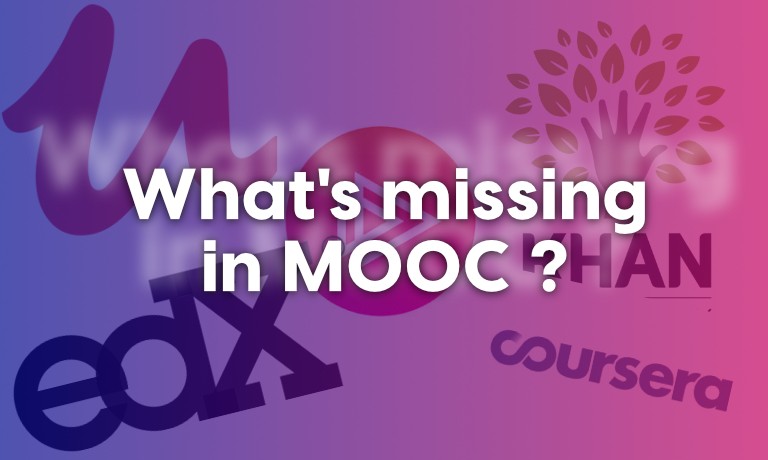
MOOC ( Massive open online courses ) are an extremely popular concept. They’ve captured a lot of limelight in their very short life span but now there have been several studies conducted by various organisations that MOOC’s may not work as well as anticipated.
MOOC is a great concept, quality education to every corner of the world. However, MOOC providers are ignoring the common fallacies.
Declining Completion rates
Studies conducted by Harvard and MIT indicate a decline in student completion rates in MOOC courses over the years. The number of students enrolling in courses vs number of students completing the course have declined over time.
Unverified Progress and Certifications and Badges.
You can complete a course in few minutes, there is no real verification that you watched a video lesson. There are several blogs, hacks available on how get badges in Khan Academy, Certifications from other MOOC providers. So there is no real verification on MOOC certifications that the Industry can trust.
Declining user engagement
As the user base of MOOC sites sky rocketed over the past few years, the user engagement has dropped to a significant low. MOOC courses are dropping 90% of their students [*] in the first two weeks of enrolment. MOOC’s are failing to retain and generate interest in their audience.
How can MOOC tackle these fallacies ?
MOOC is disrupting the education industry, so the backlash is inevitable. People are choosing a MOOC course worth $29 over a $21000 course from a University. There have been several studies to evaluate why students are leaving MOOC courses in middle. The studies highlight on two main aspects :
- Learner Intension : The intention of a learner may not be to complete the course. They just want to evaluate the course. 25% of learners are auditing the course. Also, based on the course content, learner intentions can change.
- Attrition is higher in the beginning : At the beginning of the course learner is not sure. The first few chapters need to capture the audience.
However both above points do not tackle the unverified progress in MOOC’s.
Instructor Booking approach
The case of booking an Instructor to complete or start a course. If the student is able to video conference with the Course instructor at the start of the course or even before enrolling in the course, these rates can be improved. An Instructor booking at the end of the course also ensures that the Course rewards like Certificates, Badges can not be achieved in any hacking way and it can prove a vital point for MOOCs to regain Industry’s trust.
Check out the latest Instructor Booking feature in WPLMS.
